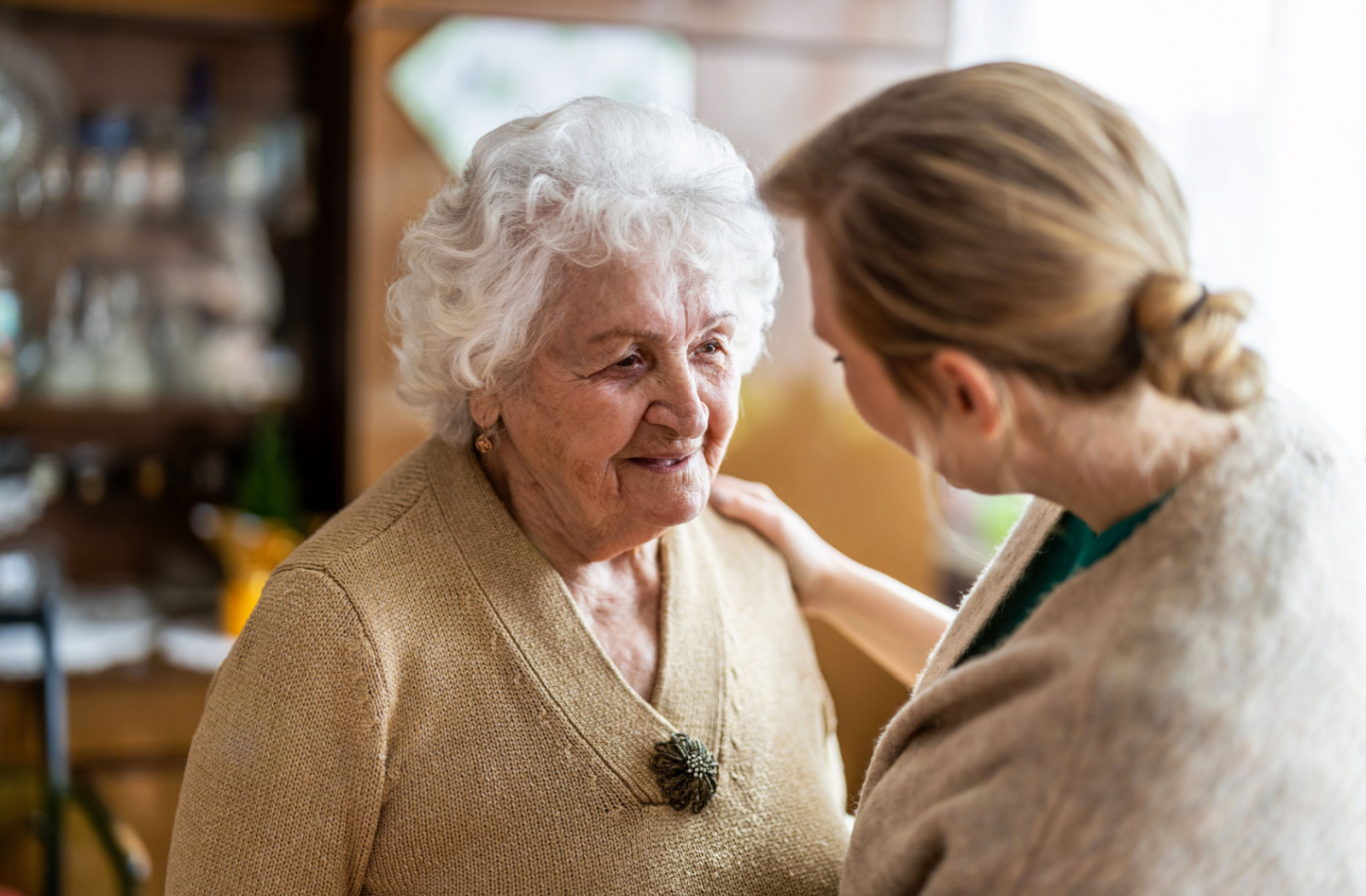Dementia is a broad term used to describe a decline in mental ability severe enough to interfere with daily life. It’s most commonly associated with Alzheimer’s disease, a progressive brain disorder that affects memory, thinking, and behavior.
While there is no cure for dementia, there are ways to manage the symptoms and provide support for those affected. Caregivers play an important role in helping those with dementia maintain their quality of life.
This can include providing emotional support, helping with daily activities, and connecting them with resources and support groups. It’s important for caregivers to understand the challenges of dementia and to be aware of the resources available to them.
Understanding the Different Types of Dementia
When it comes to dementia, there are several different types that can affect a person’s cognitive abilities.
- Alzheimer’s disease—the most common form of dementia, accounting for up to 80% of dementia cases. It progressively affects memory, thinking, and behavior.
- Lewy body dementia—caused by abnormal protein deposits in the brain, leading to changes in thinking, behavior, and movement.
- Vascular dementia—results from reduced blood flow to the brain, causing problems with thinking, reasoning, and memory.
- Frontotemporal dementia—damage to the frontal and temporal lobes of the brain, leading to changes in behavior, language, and personality. This type of dementia is rare.
No matter the type of dementia, understanding symptoms and providing proper care is essential.
Recognizing the Signs of Dementia
As a caregiver, it’s important to be aware of the signs and symptoms of dementia. Here are some common indicators to look out for:
- Memory loss and difficulty recalling recent events or information
- Difficulty completing everyday tasks that were once simple, such as cooking a meal
- Confusion or disorientation in familiar places
- Difficulty communicating thoughts and feelings through speech or writing
- Changes in behavior, such as increased aggression or social withdrawal
- Loss of interest in activities that used to be enjoyed
- Apathy and lack of motivation
It’s important to be aware of the signs and symptoms of dementia so that you can provide the best possible care for your loved one. If you have any concerns, be sure to speak to your doctor.
Providing Care for a Person with Dementia
Caring for someone with dementia can be difficult, but it’s important to remember that your loved one needs your support. Here are some tips for providing care:
- Be patient and take time to understand what the person is trying to communicate.
- Maintain a positive attitude and provide emotional support.
- Create an environment that’s safe, comfortable, and familiar.
- Provide structure and routine with a predictable daily schedule. Make sure your loved one gets plenty of physical activity and social interaction.
- Encourage independence where possible.
- Take time for yourself to avoid burnout.
By following these tips, you can help make life more comfortable for your loved one with dementia. Additionally, there are many resources available to support caregivers and provide additional information on dementia care and treatments.
Finding Support for Caregivers
Caring for someone with dementia can be rewarding, but it comes with its challenges, especially if you’re doing it alone. There are resources available to help ease the burden.
- Join a support group so that you can meet and talk with other caregivers who understand what you’re going through.
- Take advantage of respite care services to give yourself a break.
- Reach out to your local Alzheimer’s Association for resources and information about dementia care.
- Pursue counseling or therapy if you’re struggling emotionally with the demands of caregiving.
It’s important that you take time for yourself and receive support during this difficult journey. Don’t be afraid to ask for help—you don’t have to go it alone.
Staying Connected & Celebrating Milestones
It can be hard to watch a loved one change and progress through different stages of dementia, but there are still ways to stay connected and celebrate milestones.
Here are some ideas for connecting with your loved one:
- Create a scrapbook with photos and stories to remind them of happy memories.
- Take walks together or go for drives in the countryside.
- Connect through music by listening to favorite songs from their past.
- Share meals and warm conversation.
By taking the time to connect and create special moments, you can create lasting memories that will be treasured for a lifetime.
Developing a Dementia Care Plan
Caring for a person with dementia can be challenging and exhausting at times. To provide your loved one with compassionate care, it’s important to develop a comprehensive care plan. First, you should discuss the plan with your family members or other caregivers to make sure everyone is on the same page.
Your plan should include:
- A list of daily activities and tasks
- Medical information, including medications and treatments
- Emergency contact numbers
- Nutritional guidelines
- Mental health support services available in the area
Your care plan should also include plans for managing difficult behaviors that may arise as a result of dementia, such as confusion or agitation. This includes developing strategies to redirect your loved one’s attention, providing structure and routine, and making sure their physical needs are met. Finally, make sure to plan regular breaks for yourself so you have an opportunity to recharge.

How Barton House Supports Seniors with Dementia
Dementia is a complex condition that can be difficult to manage for caregivers. It’s important to understand the different types of dementia, recognize the signs and symptoms, create a supportive environment, and develop a care plan.
The Barton House Community provides a comprehensive range of services and support for seniors with dementia, as well as their caregivers. With the right support and resources, caregivers can support a high quality of life for their loved ones. Book a tour with us today for more information.



